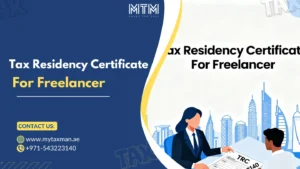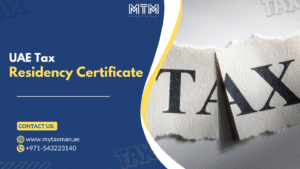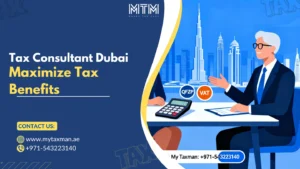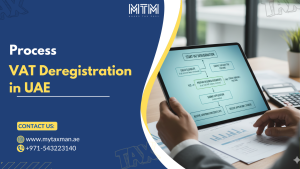Freelancers and independent consultants in the UAE can use a Tax Residency Certificate for freelancer to prove UAE tax residency and unlock double tax treaty benefits when billing foreign clients in 2026. The UAE’s domestic tax residency rules for individuals require either 183 days of presence or the 90‑day route with UAE ties, and a properly issued TRC is the document most overseas payers ask for to grant reduced or zero withholding at source.
Table of Contents
ToggleWhat is a Tax Residency Certificate (TRC)?
A Tax Residency Certificate UAE is an official confirmation that a person or entity is a tax resident certificate UAE for a defined period, enabling access to double taxation agreement (DTA) benefits abroad. The certificate is issued for treaty or domestic purposes and includes validity dates aligning with the relevant 12‑month period, which foreign tax authorities typically require to assess treaty relief.

Why freelancers need a TRC in 2026
- Withholding relief: Many foreign clients can apply reduced or nil withholding on service payments if the payee provides a Tax Residency Certificate UAE for the relevant treaty year.
- Treaty claims: If withholding happened, a Tax Residence Certificate for freelancer supports a refund claim or foreign tax credit under the other country’s procedures, reducing double taxation on cross‑border income.
- Proof of residency: The Tax Residence Certificate attests UAE tax residency under domestic and treaty rules, reducing disputes over dual residency and supporting proper allocation of taxing rights.
Who issues the TRC and how to apply
The Federal Tax Authority manages the issuance of tax certificates (including tax residency certificates) via its online platform, with process steps and timelines communicated in the application flow. Applications require selecting the relevant period, uploading supporting evidence, and paying government fees, after which the certificate is issued digitally if approved.
UAE tax residency rules for individuals (freelancers)
A natural person is tax resident in the UAE if one of the following is met: (1) 183 days or more of presence in a 12‑month period, or (2) 90 days or more of presence plus having the UAE as the usual or main place of residence and the center of financial and personal interests, subject to detailed criteria. Ministerial Decision No. 27 of 2023 clarifies how to assess “usual/primary residence,” “center of financial and personal interests,” and day‑count documentation for natural persons.
TRC types and purpose (treaty vs domestic)
- Tax Residence Certificate for International Agreements: Used to claim DTA benefits (e.g., reduced withholding) and contains a declaration referencing the specific treaty with the partner country.
- TRC for Domestic Purposes: Used primarily inside the UAE (e.g., local administrative matters) and not always accepted by foreign tax authorities for treaty withholding relief.
Commercial Activities Certificate (optional complement)
Some cross‑border transactions require a Commercial Activities Certificate (CAC) to evidence active business status for VAT refund or related administrative procedures in other jurisdictions alongside the TRC. The CAC is also administered by the UAE tax authority and is often requested by foreign bodies when DTAs or local VAT recovery rules permit relief with documentary proof of commercial activity.
Eligibility checklist for freelancers
- Meet residency test: 183 days of presence, or 90 days with the UAE as the main home and center of financial and personal interests.
- Hold a valid UAE residence permit and Emirates ID tied to your freelance status or trade/freelance license.
- Maintain UAE residential address evidence (Ejari/title deed and recent utility bill) aligned with your legal documents.
Documents freelancers typically upload
- Entry/exit report for the relevant 12‑month period to prove day‑count.
- Emirates ID, residence visa, and passport copies.
- Tenancy contract (Ejari) or title deed plus a recent utility bill showing your UAE address.
- Proof of income and activity in the UAE (e.g., freelance permit, trade license, client contracts, local bank statements).
Fees, timing, and refund policy
Government fees vary by applicant type and certificate purpose, with a non‑refundable submission fee and an issuance fee charged upon approval in many cases. Some providers note that the current practice requires paying full fees upfront at submission, with no refund if rejected, so submission readiness is critical. Processing is commonly completed within about one week when documents are complete, though timelines depend on the portal and review queue.
When to apply for the 2026 treaty use
- Match the certificate period to your client’s fiscal or calendar period where withholding applies, ensuring dates cover the service and payment timeline.
- Apply early—plan 2–4 weeks ahead of invoicing foreign clients who request Tax Residency Certificate for freelancer in advance to apply reduced rates.
- Renew annually—Tax Resident Certificate UAE are issued for a defined period, and foreign payers expect a current certificate to apply treaty rates on ongoing engagements.
How to use the TRC with foreign clients
- Share a copy of your Tax Residency Certificate and complete the payer’s local treaty form (e.g., beneficial owner and eligibility declarations) before invoicing.
- Ensure the beneficial owner of income (you or your UAE entity) matches the name on the TRC and on the invoice or contract.
- If withholding already occurred, use the Tax Residency Certificate UAE to file a refund or reclaim under the partner country’s DTA procedures within their statutory time limits.
UAE withholding tax context
UAE domestic withholding tax is currently 0%, so no WHT is deducted on outbound payments under UAE law, but foreign clients may still withhold under their local law unless a treaty and valid TRC are provided. Therefore, freelancers billing clients abroad rely on DTAs and the TRC to obtain upfront relief or to reclaim tax withheld in the client’s jurisdiction.
DTA network and dispute relief
The UAE maintains an extensive DTA network designed to prevent double taxation and improve cross‑border certainty for residents, with guidance available on resolving treaty disputes through the Mutual Agreement Procedure. Understanding the DTA article on independent personal services or business profits, along with tie‑breaker rules for dual residency, helps structure engagements with minimal friction.
Freelancer scenarios and best practices
- Solo consultant with multiple EU clients: Obtain a Tax Residency Certificate for freelancer covering the service period, align contracts to reflect UAE residency, and provide the payer’s treaty forms plus your Tax Residency Certificate before the first payment.
- New freelancer under 183 days: Assess the 90‑day with ties route under domestic rules; if not met yet, consider timing of application and residence evidence to avoid rejection.
- Using a free zone company: If you operate through a UAE entity, apply for a Tax Resident Certificate in the company’s name and ensure the entity is the contracting party and beneficial owner of income.
Application steps
- Create or access your online profile and select the Tax Residency Certificate for freelancer type (international agreements or domestic).
- Choose the correct period, upload the required documents, and ensure the day‑count and address documents are consistent.
- Pay the applicable government fees and monitor the portal for clarification requests or approval.
Common pitfalls to avoid
- Mismatched period: Tax Residence Certificate dates not covering the actual service and payment period requested by the foreign payer.
- Insufficient residence evidence: Missing day‑count report, no Ejari/utility bill, or inconsistent bank and address records.
- Wrong certificate type: Domestic Tax Residency Certificate UAE presented where the payer needs a treaty‑purpose TRC referencing the specific DTA.
How My Taxman (Freelance Tax Consultant) helps
- Residency route assessment: Confirm eligibility under the 183‑day or 90‑day with ties rule and build a compliant documentation bundle.
- Tax Residence Certificate application prep: Select the right certificate type, period, and tie documents to your freelance license, contracts, and bank records to reduce rejection risk.
- Treaty and withholding strategy: Map each client’s country rules, pre‑clear treaty forms with payers, and set a renewal calendar for 2026.
Your 2026 action plan
- Quarter 1: Confirm residency path, compile day‑count and address evidence, and pre‑approve document formats.
- Quarter 2: File TRC for the expected service period, coordinate treaty forms with key clients, and align invoicing.
- Quarter 3–4: Renew or extend coverage as needed and file any overseas refund claims within partner‑country deadlines.
FAQs
1. Can a freelancer get a Tax Resident Certificate UAE?
Yes, provided residency conditions are met and documentation supports day‑count and UAE ties for the selected period.
2. Which portal do I use for Tax Residence Certificate?
Use the UAE tax authority’s online system for the issuance of tax certificates and follow the on‑screen document and fee instructions.
3. What documents are required?
Entry/exit report, Emirates ID/residence visa, address evidence (Ejari/title deed and recent utility bill), and proof of freelance activity and banking in the UAE.
4. How long does it take?
Most complete files are processed within roughly a week, though timelines vary with volume and clarifications.
5. What about fees and refunds if rejected?
Submission fees are non‑refundable, and recent practice indicates full fees may be payable upfront with no refund if rejected, so readiness matters.
6. Does the UAE have withholding tax?
UAE domestic withholding tax is 0%, but foreign clients may withhold under their local law unless treaty relief is applied with a valid TRC.
7. What is the Commercial Activities Certificate?
An FTA‑issued certificate is often used to support VAT refunds or administrative checks abroad by proving active commercial status.
Your next step with My Taxman
Turning your UAE residency into treaty benefits takes the right certificate, the right period, and the right documents—done early and matched to each client’s rules. Get a tailored Tax Residency Certificate UAE and treaty strategy for 2026 from, so your cross‑border invoices face minimal or nil withholding from day one.
👉 Visit: mytaxman.ae
👉 Call: +971-543223140
👉 Email: connect@mytaxman.ae











